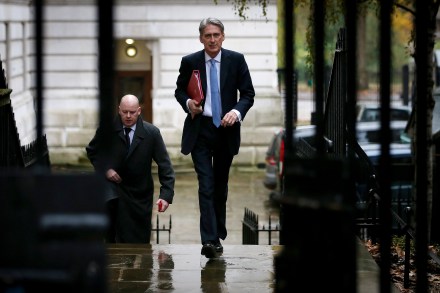Philip Hammond has reached out to an ignored class of workers
Not that he made much of a fuss about it, but Philip Hammond made a bit of history in his Budget speech yesterday. He spoke, as usual, about the main rates of tax. But then he mentioned a different one: the taper, or the effective tax rate, that faces those in low paid work. It was 65 per cent, he said, and he wanted it cut to 63 per cent. It was significant: a single parent with one child (with no housing costs) on £15k will be £170 a year better off. A couple with two children, with one parent earning £30k (with housing costs) will be £425 a year




















